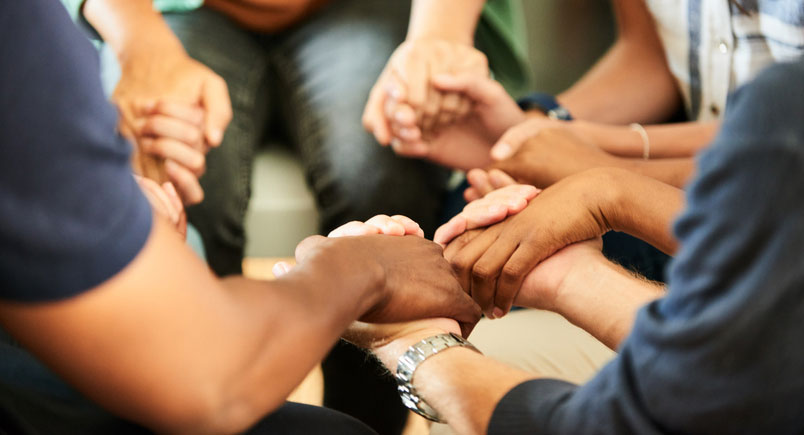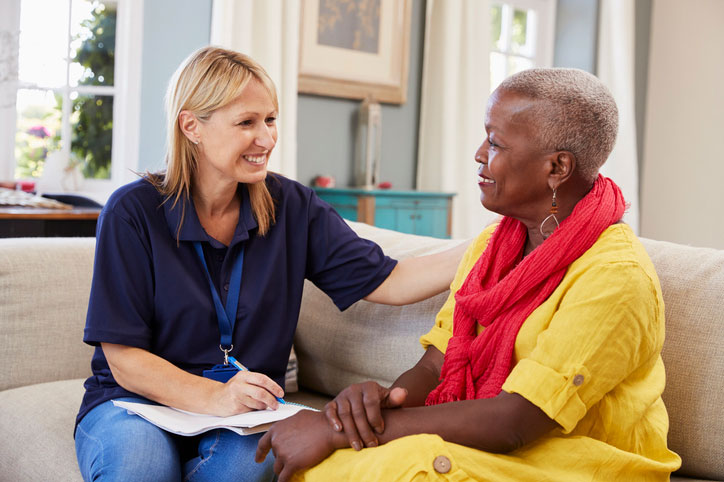Written by Scott Wilson

LCSW Meaning: In New York, Licensed Clinical Social Workers are at the pinnacle of social work licensing and practice. They have full practice authority to offer clinical therapy services independently. They also have the authority to offer supervision to LMSW (Licensed Master Social Workers) performing clinical services.
With complete independence, advanced clinical degrees behind them, and a demonstrated level of expertise and dedication, New York’s LCSWs are advancing social equity and transforming the lives of fellow New Yorkers in the process.
Look at the leadership in any social justice or charitable movement in New York, and you are likely to find licensed clinical social workers right out front.
Here you will learn exactly what LCSWs stand for, and how to earn your place among them as an influential social worker in New York.
The Heart of LCSW Meaning Is in the Scope of Practice Authority
An LCSW license isn’t just a fancy piece of paper to be framed and put up on your wall. Holding a license is what gives you actual legal authority to provide certain psychosocial services in New York that other human services professionals aren’t allowed to provide.
For the LCSW, this scope of practice is outlined in Education Law Article 154. It includes the entire scope of practice afforded to Licensed Master Social Workers (LMSW), in addition to the ability to independently provide key clinical duties:
- The evaluation, diagnosis, and psychotherapeutic treatment of mental, emotional, behavioral, development, and addictive disorders and disabilities. (The clinical diagnostic process of LCSWs goes beyond general social work assessment that just looks to distinguish between similar disorders within the psychosocial framework of classifications).
- Developing integrated plans of prioritized interventions based on diagnostic and psychosocial assessments that often include referrals to other mental health professionals and healthcare specialists.
- Psychotherapy (talk therapy) in conjunction with the development of interpersonal relationships to assist people in modifying behaviors and attitudes which are intellectually, socially, or emotionally maladaptive.
The Difference Between an LMHC vs LCSW in New York is Tangible - Literally
 Since LCSWs have the authority to perform psychotherapy, that makes the job similar to other kinds of therapy roles. The most common comparison is with Licensed Professional Counselors (LPC), or, as they are called in New York, Licensed Mental Health Counselors (LMHCs).
Since LCSWs have the authority to perform psychotherapy, that makes the job similar to other kinds of therapy roles. The most common comparison is with Licensed Professional Counselors (LPC), or, as they are called in New York, Licensed Mental Health Counselors (LMHCs).
LMHCs offer specific interventions for mental and behavioral health issues that revolves around the patient’s thought processes and coping mechanisms. It is a kind of inward focus that builds mental resilience and corrects psychological issues that are causing problems in the patient’s life.
An LCSW therapist, on the other hand, has the training and ability to go well beyond just what is happening in a client’s head. If the problem is that they are experiencing stress and anxiety because they can’t find child care so they can go to work, an LCSW doesn’t just explore meditative calming techniques. They go out and line up child care.
Recognizing that social and environmental issues can be the biggest factors in mental and behavioral problems is the social worker’s secret weapon in therapy.
As administered by the New York State Education Department’s (NYSED) Office of the Professions, the LCSW license opens up every possible type of social work practice to those who earn it.
This puts LCSWs in the absolute top tier for dealing with any kind of individual or systemic problem across the many areas in which New Yorkers might be struggling. And because New York is in many ways the center of American social consciousness, that provides enormous leverage for establishing new precedents in social equity for the entire country.
How To Become a Licensed Clinical Social Worker (LCSW) in New York State

That kind of power for change doesn’t come easily. You need to build the qualifications and the experience that comes with the LCSW license over a period of years.
The full process by which you become a New York social worker takes a lot of education and effort. From your undergrad degree to your post-MSW experience, you’ll spend at least eight years building up the training and experience necessary to meet LCSW requirements.
There are only two paths to becoming an LCSW in New York:
- Go through the steps to become a licensed master social worker, then go on to gain three years of clinical experience on the job to qualify for the LCSW
OR - If you happen to be an LCSW in another state, after ten years of work experience there you can apply for a New York license by endorsement
LCSW Degree: Earning an MSW is the Key Piece to Meeting LCSW Requirements in New York
The central piece to meeting LCSW license requirements is the Master of Social Work (MSW).
While in all likelihood, any program you find in the CSWE-accredited MSW directory will ultimately be accepted for licensure, NYSED has a list of universities that offer MSW programs pre-approved for clinical licensure. These programs have both the general required coursework for your LMSW, as well as the additional clinical classes to take you through to full LCSW licensure.
(NOTE: The NYSED, Office of the Professions is a busy state agency and may fall behind in maintaining its list of registered programs. We identified a number of schools on the registered program list that are currently closed or that have rebranded. We provide a list below that is current as of late 2024.)
- Adelphi University - School of Social Work - Master of Science in Social Work
- Columbia University - School of Social Work - Master of Science in Social Work
- CUNY College of Staten Island - Department of Social Work - Master of Social Work
- CUNY Hunter College - Silberman School of Social Work - Master of Social Work
- CUNY Lehman - School of Health Sciences, Human Services & Nursing - Master of Social Work
- CUNY York College - Department of Social Work - Master of Social Work
- Daemen College - College of Health, Human Sciences & Business - Master of Social Work
- Fordham University - Graduate School of Social Service - Master of Social Work
- Keuka College - Division of Social Work - Master of Social Work
- Long Island University - Brooklyn - School of Health Professions - Master of Social Work
- Long Island University - Post - School of Health Professions - Master of Social Work
- Nazareth College - College of Interprofessional Health and Human Services - Master of Social Work
- New York University - Silver School of Social Work - Master of Social Work
- Roberts Wesleyan University - Department of Social Work - Master of Social Work
- SUNY Brockport - Department of Social Work - Master of Social Work
- SUNY Albany - School of Social Work - Master of Social Work
- SUNY Binghamton - Department of Social Work - Master of Social Work
- SUNY Buffalo - School of Social Work - Master of Social Work
- SUNY Stony Brook - School of Social Welfare - Master of Social Work
- Syracuse University - Falk College of Sport & Human Dynamics School of Social Work - Master of Social Work
- Touro University - Graduate School of Social Work - Master of Social Work
- Yeshiva University - Wurzweiler School of Social Work - Master of Social Work
Although all these schools have at least one degree specialization that qualifies for LCSW licensing, it’s important to check with the school you’re interested in to ensure the specialization you might be looking at meets LCSW curriculum requirements.
Supervised Clinical Experience Builds LCSW Skills and Capabilities On the Job
Qualifications for the LCSW are built on top of everything that goes into earning an LMSW. In fact, you can only qualify for the LCSW after first earning the LMSW and gaining supervised experience under that license.
This period of supervised clinical experience working directly with clients, performing diagnoses, psychotherapy, and assessment-based treatment plans is the single most significant thing that sets LCSWs apart from all other social workers in New York.
After earning your MSW, being granted the LMSW license, and securing a job, you’re all set for the last major phase before becoming an LCSW in New York.
For the first 36 months with your new employer, you’ll be gaining valuable experience, all of which will be documented to count toward the 2,000 direct client contact hours you need to become an LCSW.
This supervised period represents one of the professional duties and sacred obligations of New York’s social work community, fostering newly minted social workers through the process of becoming fully licensed clinical practitioners.
Employers are happy to provide qualified supervisors to support you along the way. It’s standard practice for employers to hire LMSWs with the express intent of providing that supervision and seeing the employee through the three-years of supervision required to earn the LCSW.
Supervision Only Applies to Clinical Duties
 Of course, supervision only applies to clinical social work practice – namely diagnosis of common mental health and behavioral problems, followed by the psychotherapy (talk therapy) used to treat those problems.
Of course, supervision only applies to clinical social work practice – namely diagnosis of common mental health and behavioral problems, followed by the psychotherapy (talk therapy) used to treat those problems.
Supervision in the clinical context just means that your supervisor bears ultimate responsibility for your clients. They will oversee your treatment in a general way, approving your plans, reviewing your treatment notes, and offering advice and insight that helps make you a better clinical social worker all the way around.
While most LMSWs will be supervised by LCSWs during this period, it’s also possible to get your supervision hours from a licensed psychologist or psychiatrist. This is more likely to be the case in healthcare settings or mental health treatment facilities.
The Licensed Clinical Social Worker Exam is the Final Step to Becoming an LCSW in New York
The LCSW test requirements in New York involve passing the ASWB (Association of Social Work Boards) Clinical level examination.
You’ll have to file your application forms and be approved by NYSED’s Office of the Professions before you will become eligible to register for the test. The cost of the exam is $260.
There are 170 LCSW questions on the test, all of which are multiple choice. Some are knowledge-based and others require reasoning abilities. ASWB offers an Examination Guidebook that will tell you exactly what areas are covered and in what proportions:
- Human Development, Diversity, and Behavior in the Environment - 24 percent
- Human Growth and Development
- Human Behavior in the Social Environment
- Diversity and Discrimination
- Assessment, Diagnosis, and Treatment Planning - 30 percent
- Biopsychosocial History and Collateral Data
- Assessment and Diagnosis
- Treatment Planning
- Psychotherapy, Clinical Interventions, and Case Management - 27 percent
- Therapeutic Relationship
- The Intervention Process
- Service Delivery and Management of Cases
- Consultation and Interdisciplinary Collaboration
- Professional Values and Ethics - 19 percent
- Professional Values and Ethical Issues
- Confidentiality
- Professional Development and Use of Self
LCSW (Licensed Clinical Social Worker) Jobs Across the Empire State

LCSWs are highly sought after all across New York. As the highest level of licensure in the state, they are found everywhere in the social services community, not strictly in clinical practice. They perform every task at every level that social workers provide, serving as generalists and in any one of the many specialized fields those services are a part of.
That opens up a wide range of different paths, revolving both around specialization and the kind of employer you choose. Every type of social work career in New York is open to professionals who hold the LCSW license.
While LCSWs are free to work in micro, macro, or mezzo social work roles, the real advantage to the license is that it allows independent clinical treatment. So most LCSWs, at least initially, will focus on micro social work jobs that involve a lot of close contact and therapy work with individual clients.
There are many different social work roles that fit that description. LCSW jobs in NYC may put you out working outreach on the E line during cold weather emergencies, talking unhoused people into taking open beds at shelters… or it could put you in an office in Watertown helping military families coping with limited resources while an active duty spouse is on deployment.
And since supervision isn’t required, you’re also entirely free to branch out on your own as an LCSW and establish an independent nonprofit.
See a problem with society? Start doing something about it. That’s your job. That’s your power as an LCSW.
LCSW Salary in New York
As top-level license holders in social work practice for New York, LCSW pay can be expected to come in above the average salary of $78,038 that the US Department of Labor, Bureau of Labor Statistics (BLS) shows for social workers in general in New York.
Though the BLS doesn’t separate social work salaries according to license level, they do break out specialized areas of practice that are pretty much the sole domains of LCSWs – child welfare, healthcare, mental health and substance use disorder counseling.
LCSW salaries are best represented by the top 25% in the field in New York, so that’s what we show here for those popular specialties:
Specialty | LCSW Salary |
Child, family, and school social workers | $84,270 |
Healthcare social workers | $77,990 |
Mental health and substance abuse social workers | $92,470 |
All other social workers | $90,770 |
Like all kinds of jobs, your experience is almost always a factor in getting a higher salary. Since LCSWs, by definition, have at least three more years on the job than any LMSW just starting out, that’s already likely to nudge your pay higher.
The additional license authority that comes with an LCSW gives you more capabilities on the job. And since you can operate independently, that’s a big plus for employers and something they’re willing to pay a premium for.
Also, LCSWs are allowed to offer clinical supervision, which is a valuable service that lets employers fill lower-level positions with LMSWs. In fact, many LCSWs end up in managerial or supervisory roles even outside clinical practice. The added expertise and experience make them well-suited to directing other social workers in the most effective way.
Professional Certification and Continuing Education To Keep Your LCSW License Current and Your Skills Sharp
While an LCSW is at the top of the ladder in New York when it comes to social work licensing and job qualifications, it doesn’t mean you are done learning after getting there. NYSED requires that every social worker get at least 36 credits of continuing education before the close of each three-year license renewal cycle.
Continuing Education Units (CEUs) are accrued by attending courses, conferences, making presentations, publishing articles, or various other ways where you can expand your understanding of the latest developments in social work.
Since you are already going to be busy studying, it’s common to apply some of those CEUs toward earning a professional certification.
Earning that professional certification is a sign of specialized expertise. It’s a way to tell clients and employers that you have put in the extra time and effort to really master your area of focus in social work.
The National Association of Social Workers is the most common and widely recognized professional certification body in the field, but you can find others that offer certs in your niche.
What you do with an LCSW license is the ultimate testimony to your care and commitment. And there’s no limit to the good you can do in New York with the authority it grants.
2023 US Bureau of Labor Statistics salary and employment figures for Social Workers reflect national data, not school-specific information. Conditions in your area may vary. Data accessed April 2024.
